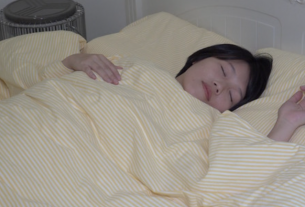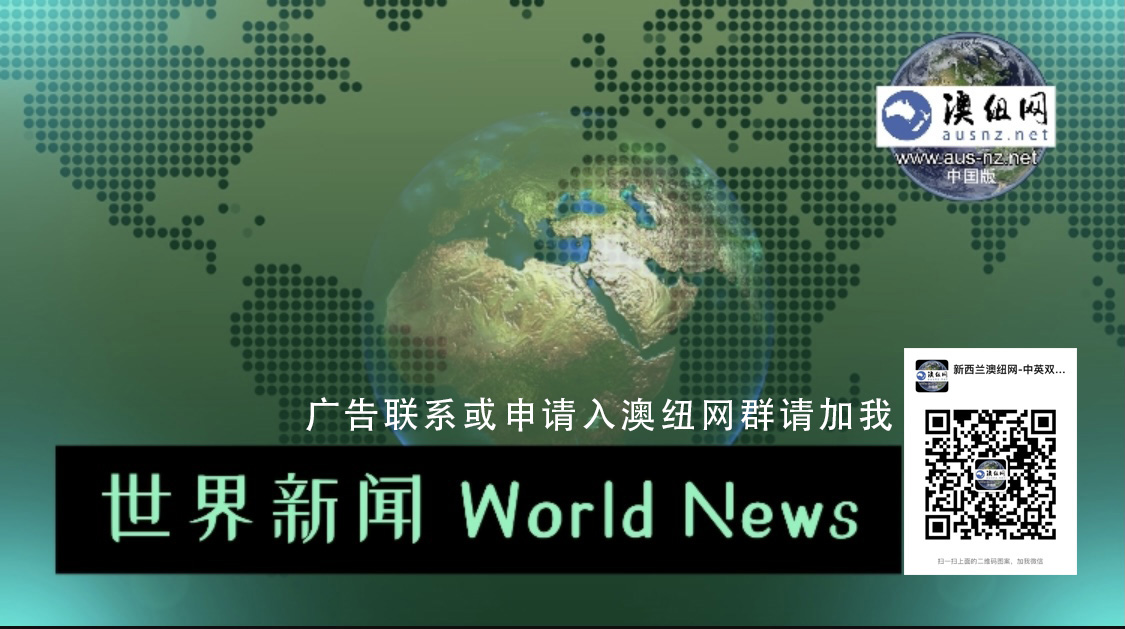“In Aotearoa, most people with depression either soldiered on — often denying their pain, perhaps diverting it through hard work, care for others, their faith or substance abuse — or had the support of whānau, family and friends” – Jacqueline Leckie in Old Black Clouds.
【澳纽网编译】“在新西兰,大多数抑郁症患者要么坚持不懈——经常否认自己的痛苦,也许通过努力工作、照顾他人、信仰或药物滥用来转移痛苦——要么得到了家庭、家人和朋友的支持”——《老黑云》中的杰奎琳·莱基。
Depression affects people in all cultures but for centuries it has “hidden under the long black cloud of Kiwi denial”, health historian Jacqueline Leckie says.
抑郁症影响着所有文化中的人们,但几个世纪以来,它“一直隐藏在否认新西兰人的长期乌云之下”,健康历史学家杰奎琳·莱基(Jacqueline Leckie)说。
[xyz-ihs snippet=”In-article-ads”]
In her new book Old Black Clouds, Leckie explores how depression has been regarded and disregarded in a country that idealises “being pragmatic and getting on with things”.
在她的新书《老黑云》中,莱基探讨了在一个理想化“务实和继续做事”的国家,抑郁症是如何被看待和忽视的。
Old Black Cloud, by researcher and historian Jacqueline Leckie, is published through Massey University Press. Photo: Supplied
研究员和历史学家杰奎琳·莱基(Jacqueline Leckie)所著的《老黑云》(Old Black Cloud)由梅西大学出版社(Massey University Press)出版。 照片:提供
The early Māori understanding of depression, the loneliness of Aotearoa’s colonial settlers and New Zealand’s mental health institutions are all covered in Old Black Clouds – a play on the saying, ‘land of the long white cloud’.
早期毛利人对抑郁症的理解,奥特亚罗瓦殖民定居者的孤独感以及新西兰的精神卫生机构都笼罩着古老的黑云——这是对“长白云之地”这句话的戏谑。
[xyz-ihs snippet=”GoogleADresponsive”]
In the 21st century, the backlash to the medicalisation of depression and the promotion of the idea that it’s “just part of life’s woes”, Leckie says.
莱基说,在21世纪,对抑郁症医学化的强烈反对以及“抑郁症只是生活困境的一部分”这一观点的推广。
Although some mental health campaigns try to destigmatise depression as “just like any other illness” this isn’t quite the case, Leckie explains.
尽管一些心理健康运动试图将抑郁症视为“就像任何其他疾病一样”,但事实并非如此,莱基解释说。
Partly due to its invisibility, depression wasn’t really taken seriously in the past, just as it can be misunderstood now.
部分由于抑郁症的隐形性,抑郁症在过去并没有真正被认真对待,就像现在它可能被误解一样。
“If you broke your arm or your leg, even in the 19th century, there were ways of treating it, and you could see it. People could see that you couldn’t work.”
“如果你摔断了胳膊或腿,即使在19世纪,也有治疗方法,你可以看到它。人们可以看到你不能工作。
For many, depression is a crippling condition, Leckie says, but many who suffered from it then, as now, somehow found a way to “press on”.
莱基说,对许多人来说,抑郁症是一种致残性疾病,但当时和现在的许多抑郁症患者都找到了 “坚持下去 ”的方法。
“Most people who had depression, or what we probably would call depression, they went on with their lives, they worked, they had families, they fell in love, they fell out of love. They went to the pub or the church or whatever. “
“大多数患有抑郁症的人,或者我们可能称之为抑郁症的人,他们继续他们的生活,他们工作,他们有家庭,他们坠入爱河,他们失去了爱情。他们去了酒吧或教堂或其他什么地方。“
[xyz-ihs snippet=”GoogleADresponsive”]
Before “depression” became a diagnostic category in the twentieth century, people were commonly diagnosed with ‘melancholia’ – a term that covered mania, psychosis, anxiety and depression.
在“抑郁症”成为二十世纪的诊断类别之前,人们通常被诊断为“忧郁症”——一个涵盖躁狂症、精神病、焦虑症和抑郁症的术语。
In the 19th century, alcohol, which can be a depressant, was often cited as a cause of melancholia amongst immigrants faced with overwhelming loneliness.
在 19 世纪,酒精可能是一种镇静剂,经常被认为是面临压倒性孤独感的移民忧郁症的原因。
Despite this, many documented cases were either teetotallers or people from cultures – such as China – who didn’t drink alcohol, Leckie points out.
尽管如此,许多记录在案的病例要么是饮酒者,要么是来自中国等不同文化的人,他们不喝酒,莱基指出。
For vulnerable people in search of DIY depression treatment, “quack cures” were offered by charlatans even back in the 1800s, she says.
她说,对于寻求 DIY 抑郁症治疗的弱势群体,即使在 1800 年代,江湖骗子就提供了“庸医”。
Those in serious distress spent time in the infamous mental health institutions, initially called asylums, where from the 1940s treatments included lobotomies, electroconvulsive therapy, insulin shock therapy and deep sleep therapy – sedation with drugs for most of the day.
那些处于严重困境中的人在臭名昭著的精神卫生机构中度过了一段时间,最初被称为庇护所,从 1940 年代开始,那里的治疗包括脑叶切除术、电休克疗法、胰岛素休克疗法和深度睡眠疗法——一天中大部分时间都用药物镇静。
While some of these places were “pretty horrendous”, they sometimes provided true ‘asylum’ to those in need, Leckie says.
莱基说,虽然其中一些地方“非常可怕”,但它们有时会为有需要的人提供真正的“庇护”。
Nowadays, many people still find it difficult to seek help for their mental health so while the word ‘depressed’ can be overused colloquially, she believes that’s better than having a taboo around it.
如今,许多人仍然很难为自己的心理健康寻求帮助,因此,虽然 “抑郁 ”一词在口语中被过度使用,但她认为这总比讳疾忌医要好。
“I wouldn’t like to see the pendulum swing back the other way, where people won’t talk about their feelings.”
“我不希望看到钟摆倒转,人们不愿意谈论自己的感受”。
[xyz-ihs snippet=”googleAD300x100″]
Related: 相关:
Where to get help for mental health:
在哪里获得心理健康帮助:
Need to Talk? Free call or text 1737 any time to speak to a trained counsellor, for any reason.
需要谈谈吗?无论出于何种原因,随时免费拨打或发短信 1737 与训练有素的辅导员交谈。
Lifeline: 0800 543 354 or text HELP to 4357
生命线:0800 543 354 或发送短信 HELP 至 4357
Suicide Crisis Helpline: 0508 828 865 / 0508 TAUTOKO (24/7). This is a service for people who may be thinking about suicide, or those who are concerned about family or friends.
自杀危机求助热线:0508 828 865 / 0508 TAUTOKO(24/7)。这是一项为可能正在考虑自杀的人,或那些担心家人或朋友的人提供的服务。
Depression Helpline: 0800 111 757 (24/7) or text 4202
抑郁症热线:0800 111 757 (24/7) 或短信 4202
Samaritans: 0800 726 666 (24/7)
撒玛利亚人: 0800 726 666 (24/7)
Youthline: 0800 376 633 (24/7) or free text 234 or email talk@youthline.co.nz
青年热线:0800 376 633 (24/7) 或免费短信 234 或电子邮件 talk@youthline.co.nz
What’s Up: free counselling for 5 to 19 years old, online chat 11am-10.30pm 7days/week or free phone 0800 WHATSUP / 0800 9428 787 11am-11pm Asian Family Services: 0800 862 342 Monday to Friday 9am to 8pm or text 832 Monday to Friday 9am – 5pm. Languages spoken: Mandarin, Cantonese, Korean, Vietnamese, Thai, Japanese, Hindi, Gujarati, Marathi and English.
What’s Up:5 至 19 岁的免费咨询,每周 7 天上午 11 点至晚上 10:30 在线聊天或免费电话 0800 WHATSUP / 0800 9428 787 上午 11 点至晚上 11 点 亚洲家庭服务:0800 862 342 周一至周五上午 9 点至晚上 8 点或发短信 832 周一至周五上午 9 点至下午 5 点。使用语言:普通话、粤语、韩语、越南语、泰语、日语、印地语、古吉拉特语、马拉地语和英语。
Rural Support Trust Helpline: 0800 787 254
农村支持信托帮助热线:0800 787 254
Healthline: 0800 611 116
健康热线:0800 611 116
Rainbow Youth: (09) 376 4155
彩虹青年: (09) 376 4155
OUTLine: 0800 688 5463 (6pm-9pm)
电话: 0800 688 5463 (6pm-9pm)
If it is an emergency and you feel like you or someone else is at risk, call 111.
如果是紧急情况,并且您觉得自己或其他人处于危险之中,请拨打 111。
Where to get help for sexual violence:
性暴力求助渠道
Victim Support 0800 842 846
受害者支持 0800 842 846
Rape Crisis 0800 88 33 00
强奸危机 0800 88 33 00
Rape Prevention Education
预防强奸教育
HELP Call 24/7 (Auckland): 09 623 1700, (Wellington): 04 801 6655 – push 0 at the menu
HELP Call 24/7(奥克兰):09 623 1700,(惠灵顿):04 801 6655 – 在菜单中按 0
Safe to talk: a 24/7 confidential helpline for survivors, support people and those with harmful sexual behaviour: 0800044334
安全交谈:为幸存者、支持人员和有有害性行为的人提供的 24/7 全天候保密帮助热线:0800044334
Male Survivors Aotearoa
男性幸存者 Aotearoa
Survivors Network of those Abused by Priests (SNAP) 022 344 0496
被牧师虐待的幸存者网络 (SNAP) 022 344 0496
来源:RNZ
[xyz-ihs snippet=”moreNZnews”]
[xyz-ihs snippet=”multiple-ads”]
610 views






